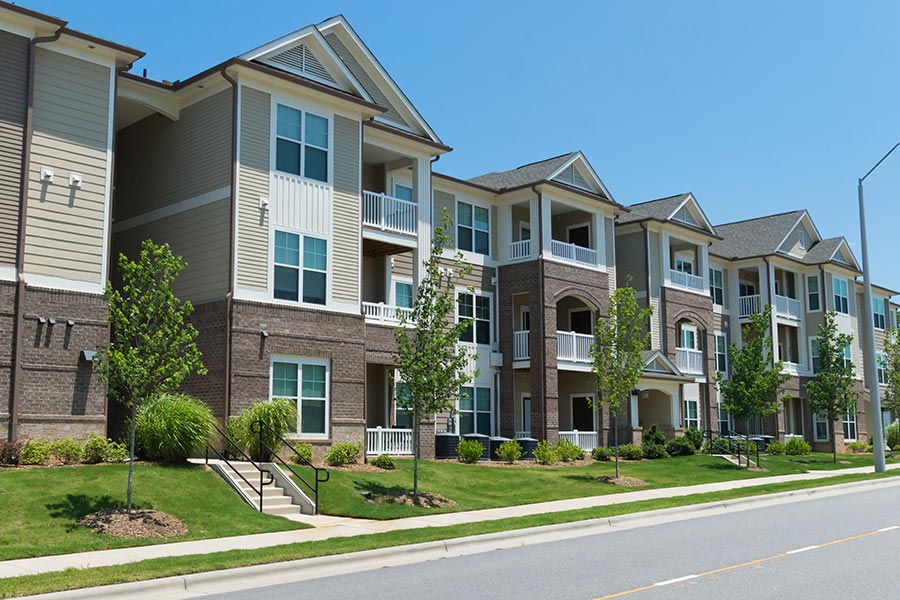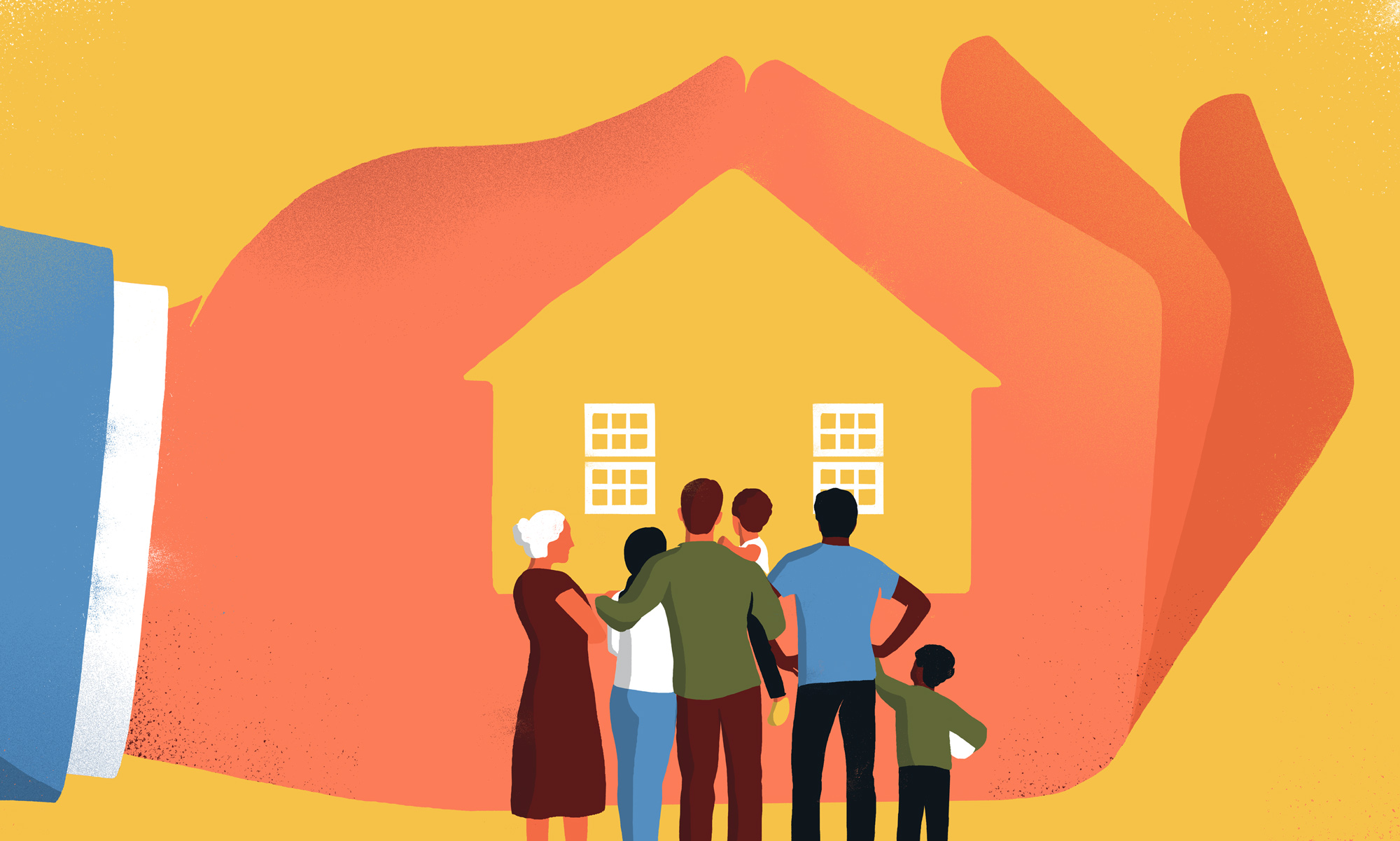Your Overview to Affordable Homeownership: Actions to Having Your Dream Home
Accomplishing budget-friendly homeownership is a multifaceted procedure that calls for calculated planning and notified options. Begin by evaluating your monetary landscape to develop a budget plan that mirrors your capacities and desires. As you discover the real estate market, recognizing chances and patterns ends up being vital.

Evaluate Your Economic Scenario
Evaluating your monetary circumstance is an essential initial step in the trip towards inexpensive homeownership. This evaluation entails a comprehensive evaluation of your earnings, cost savings, expenditures, and debts. Start by calculating your total monthly income, including salaries, rewards, and any additional revenue streams. Understanding your monetary landscape supplies a clear photo of just how much you can assign towards homeownership.
Next, analyze your regular monthly costs, categorizing them right into repaired and variable costs. Set expenditures may include rental fee, energies, and insurance, while variable costs incorporate optional spending. It is vital to recognize locations where you can decrease expenses to raise your savings, which subsequently will boost your homebuying capacity.
Additionally, analyze your existing financial debts, such as pupil financings or bank card balances. Lenders commonly evaluate your debt-to-income proportion, making it essential to decrease and manage financial obligation prior to getting a mortgage. Assess your cost savings and emergency situation funds, as these will certainly add to your down settlement and closing costs. By thoroughly evaluating your monetary circumstance, you can lay a strong structure for a effective and sustainable homeownership experience.
Develop a Realistic Spending Plan
Developing a realistic budget is essential for achieving budget-friendly homeownership. A well-structured budget plan functions as the structure for your economic planning and assists ensure that you can pleasantly take care of homeownership costs. Begin by evaluating your current income and expenses to evaluate your economic wellness. Recognize repaired and variable expenses, consisting of utilities, grocery stores, and transport.
Next, take into consideration prospective homeownership expenses, such as home mortgage repayments, residential property taxes, insurance, upkeep, and utilities. A typical guideline is to allot no more than 28% of your gross month-to-month earnings towards real estate expenses. This technique helps maintain a well balanced budget plan and reduces the threat of monetary strain.
Include cost savings into your allocate unanticipated expenditures and future home improvements. It is vital to remain versatile; readjust your spending plan as your monetary scenario changes. Additionally, track your costs routinely to make sure adherence to your spending plan and make necessary modifications.
Last but not least, remember to account for shutting prices and moving expenses when planning your budget plan. By producing a practical budget, you will be better positioned to navigate the complexities of homeownership, inevitably bring about a more fulfilling and financially protected experience.
Explore Financing Options

Begin by taking into consideration traditional home loan alternatives, such as fixed-rate and adjustable-rate home mortgages. Fixed-rate mortgages visit their website use security with regular monthly repayments, while variable-rate mortgages might offer reduced initial rates but can vary over time. Make sure to examine your risk tolerance and future financial plans when selecting in between these choices.
Additionally, examine government-backed loans like FHA, VA, and USDA car loans, which can satisfy novice purchasers or those with lower earnings degrees. These programs commonly include reduced down settlement needs and even more versatile credit rating qualifications.
Last but not least, do not forget neighborhood and state programs that supply help, such as deposit aid or grants. Affordable Homeownership. Consulting with a home mortgage broker or monetary advisor can further brighten the very best financing paths customized to your special scenarios. By completely assessing your funding choices, you can make informed choices that line up with your goals of attaining economical homeownership
Research the Real Estate Market
Understanding the dynamics of the real estate market is important for effective homeownership. Start by evaluating neighborhood market trends, including average home costs, supply degrees, and days on the market.
Use on-line sources such as property internet sites, neighborhood real estate records, and federal government magazines to gather necessary market stats. Take note of local financial indicators, such as work development and population fads, as these aspects substantially influence real estate demand. In addition, take into consideration the seasonality of the market; specific times of the year might offer better possibilities for acquiring a home at a favorable price.
Armed with this info, you can much better assess your choices, negotiate efficiently, and ultimately safeguard a building that satisfies your needs while remaining within your financial parameters. Looking into the housing market is a foundational step in the journey towards budget friendly homeownership.
Make an Offer and Close
Having collected the required insights from your marketing research, the following basics action is to make an offer and navigate the closing procedure. When creating your offer, think about the property's market worth, similar sales, and the problem of the home. Work together very closely with your realty agent to guarantee your deal is competitive yet practical, potentially including contingencies for examinations or funding.
Once your deal is accepted, the closing procedure starts. This includes a number of crucial steps, consisting of securing funding, performing a home assessment, and getting an assessment. Your lending institution will certainly need a comprehensive evaluation of your monetary standing and the residential property's value to settle your mortgage.
During this stage, be prepared to discuss any kind of repair services or giving ins that develop from the assessment findings. Furthermore, work with a title business to make certain clear possession transfer and to address any liens or legal issues associated with the building.
Conclusion
Achieving inexpensive homeownership needs an organized method that encompasses monetary assessment, budgeting, funding expedition, market research study, and diligent closing treatments. By diligently assessing private monetary situations and leveraging readily available sources, possible house owners can make educated choices that line up with their objectives. Understanding the real estate market dynamics additionally boosts the likelihood of protecting a preferable home. Ultimately, an organized strategy helps with an effective shift into homeownership, transforming the desire of owning Source a dream home into a concrete fact.
Evaluating your financial scenario is a crucial initial action in the journey towards inexpensive homeownership. Recognizing your monetary landscape offers a clear image of exactly how much you can assign towards homeownership.
By thoroughly analyzing your monetary scenario, you can lay a strong foundation for a successful and lasting homeownership experience.
A well-structured budget plan offers as the foundation for your economic planning and assists guarantee that you can conveniently manage homeownership costs.Accomplishing inexpensive homeownership needs an organized approach that encompasses financial assessment, budgeting, funding exploration, market research, and persistent closing procedures.
Comments on “Learn About the Benefits of Affordable Homeownership for New Buyers”